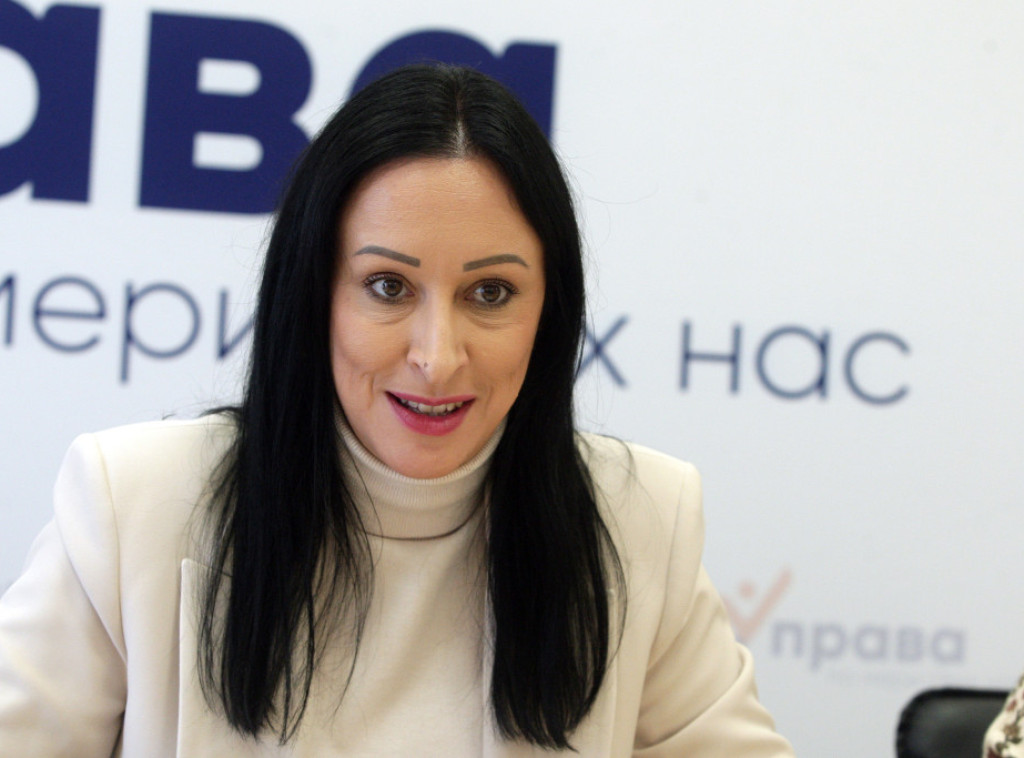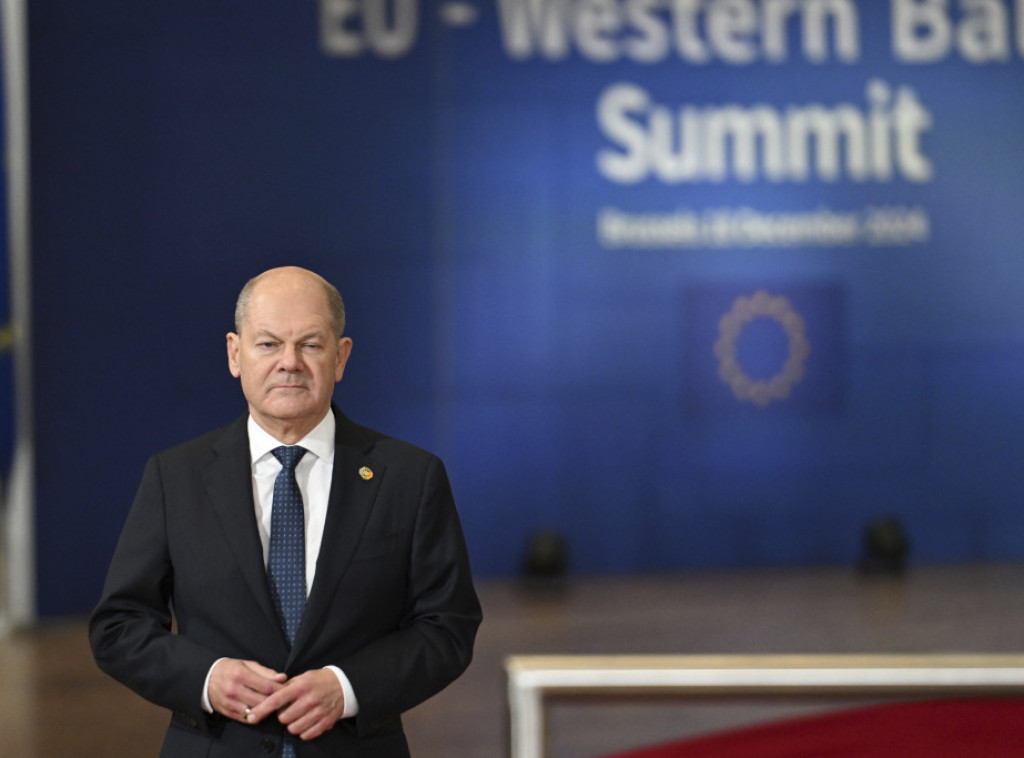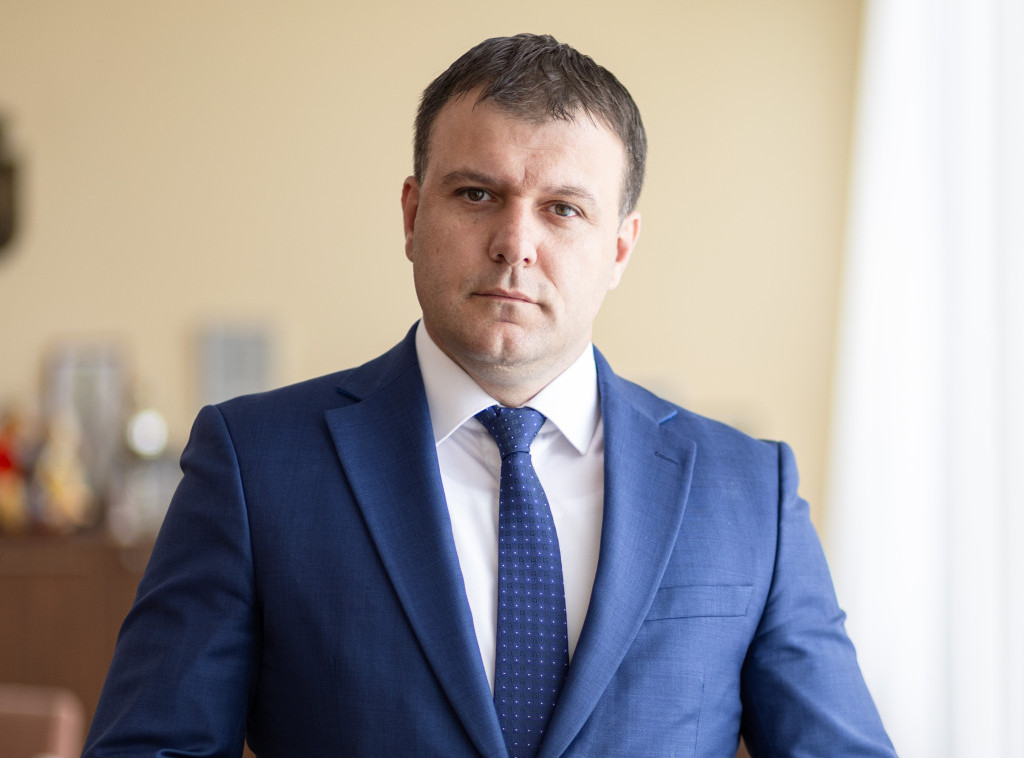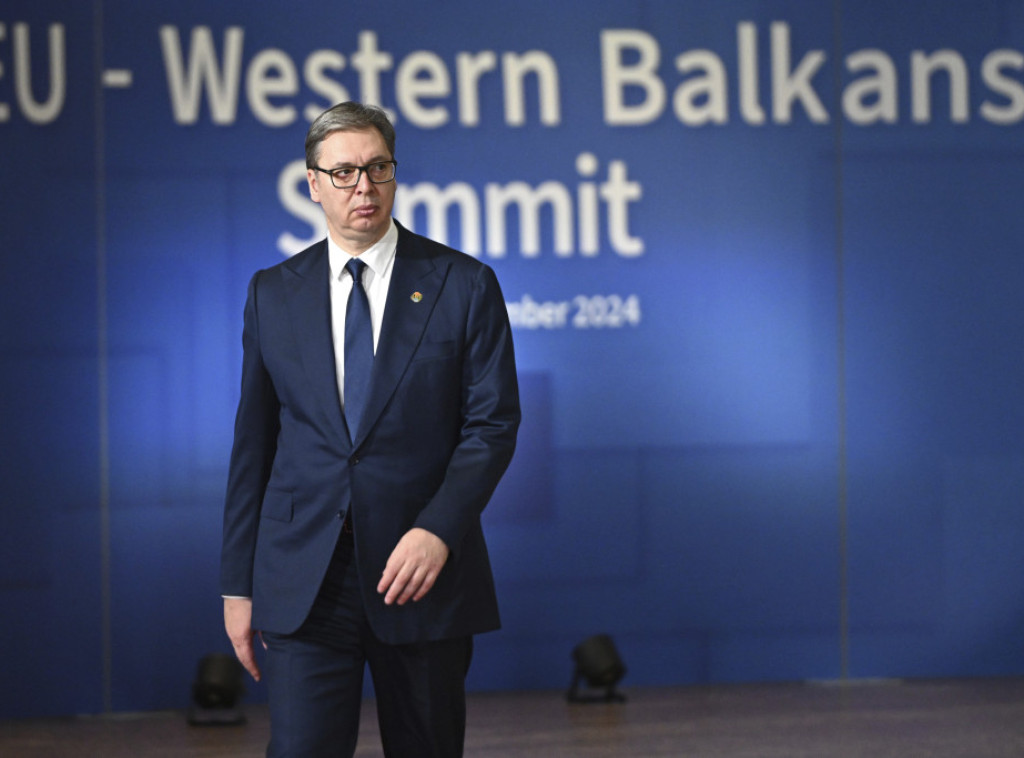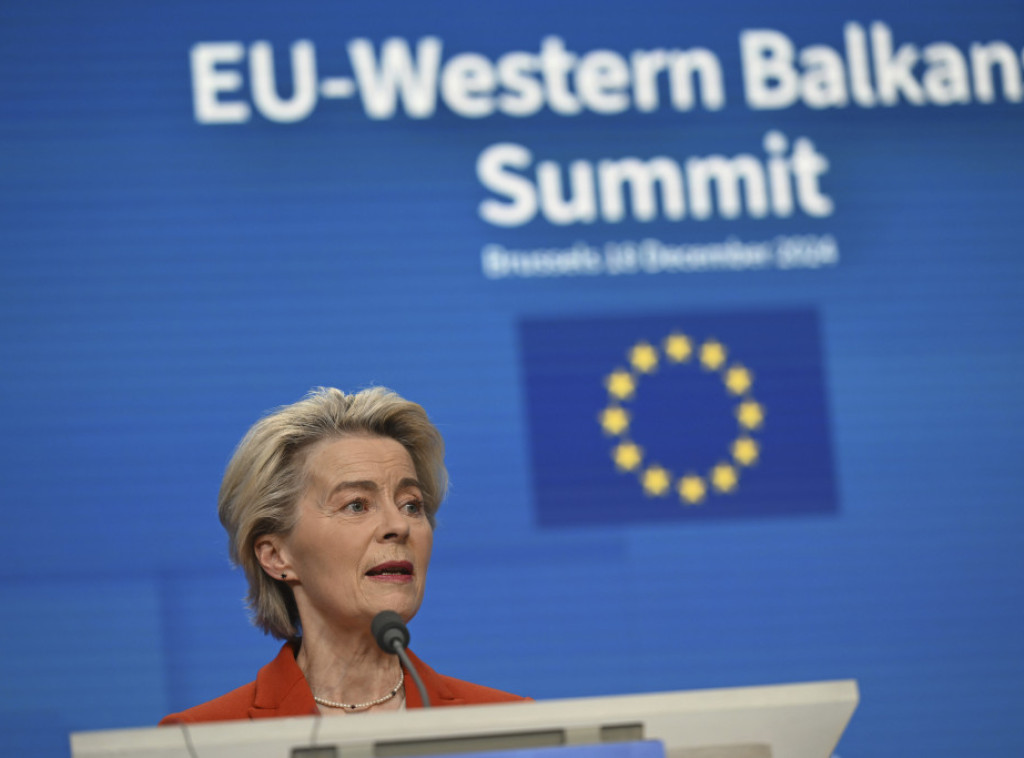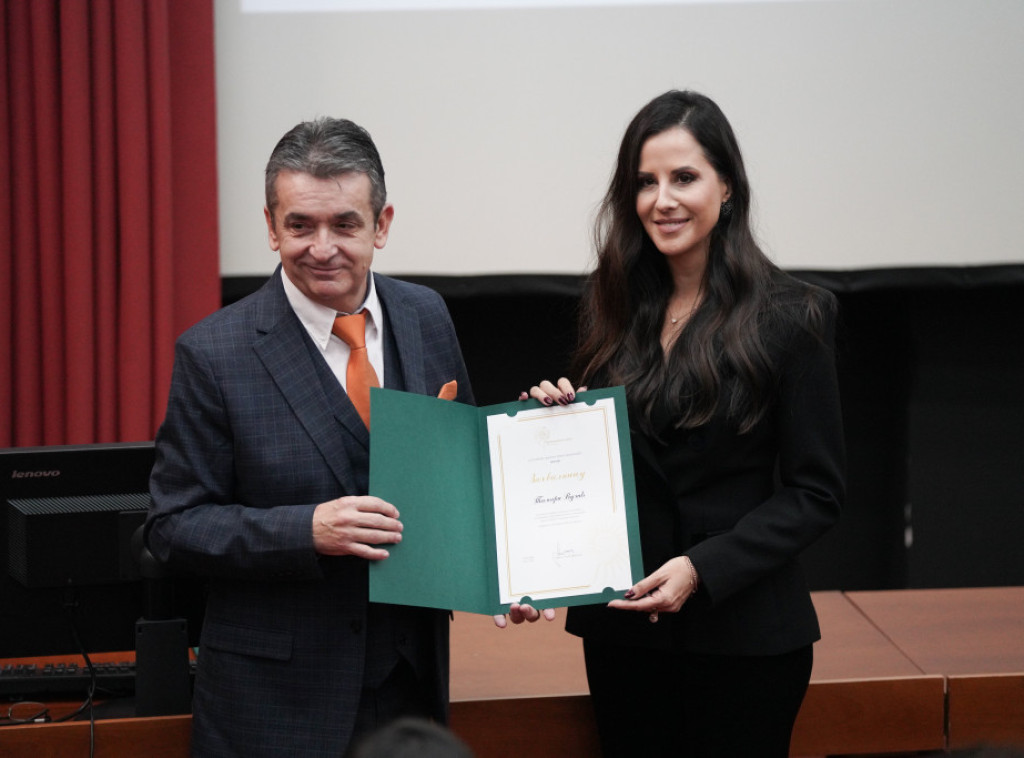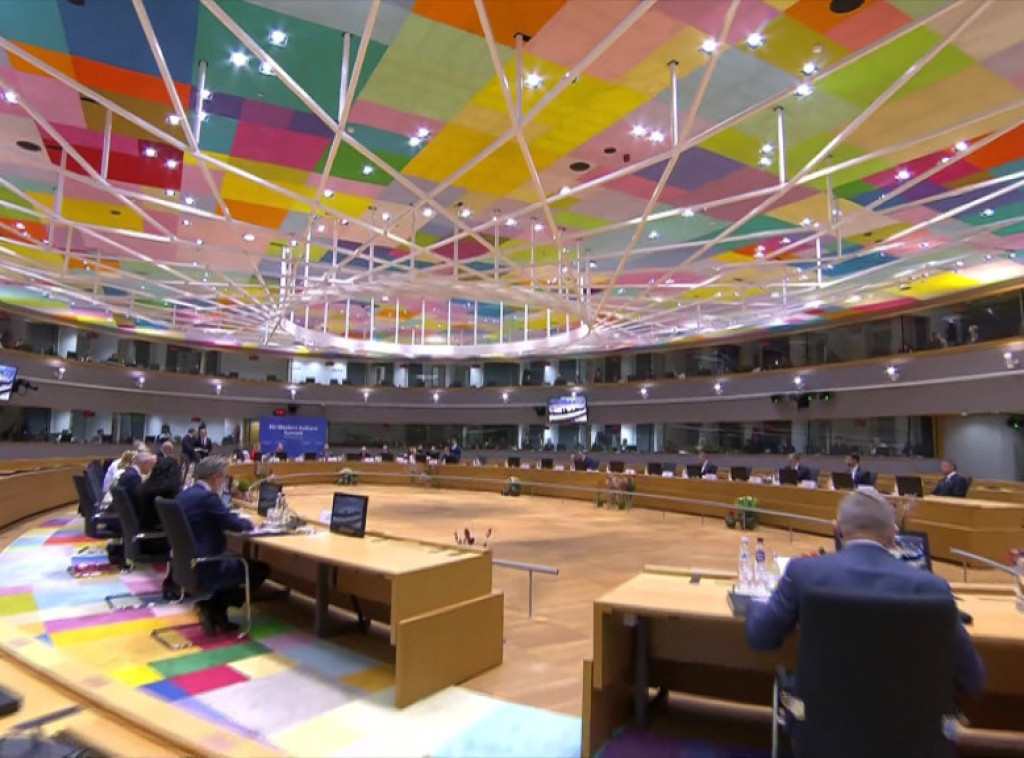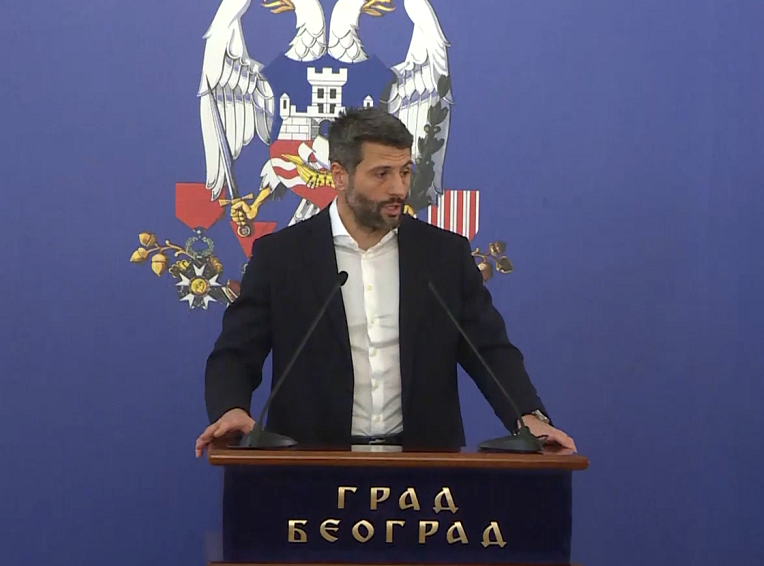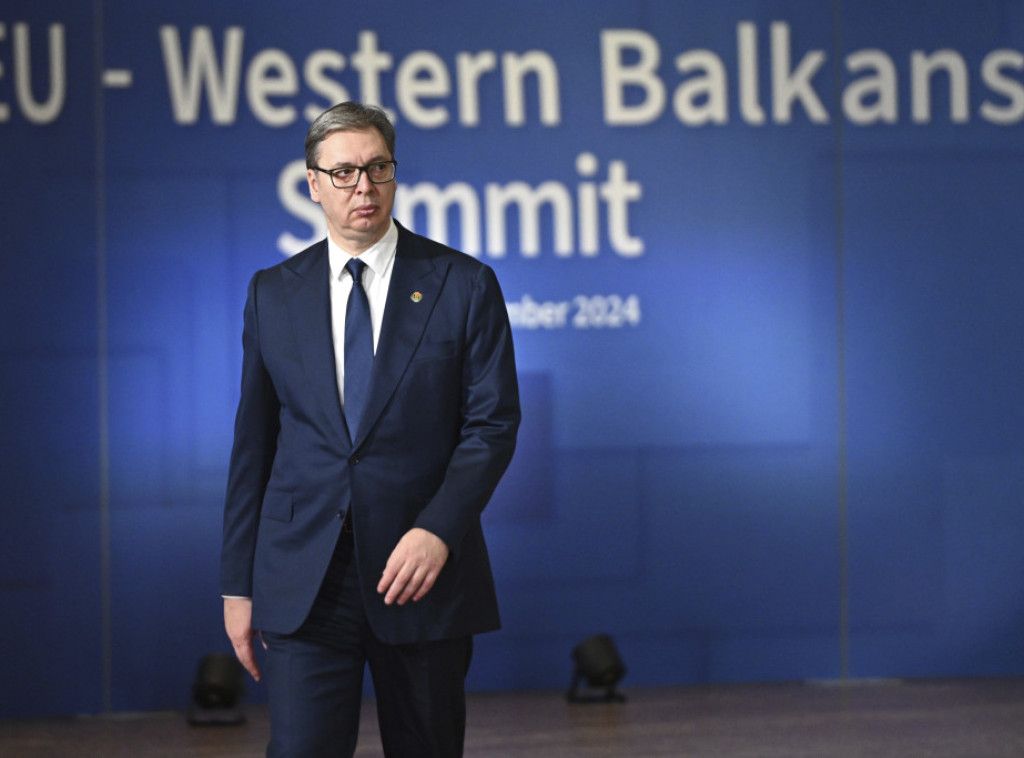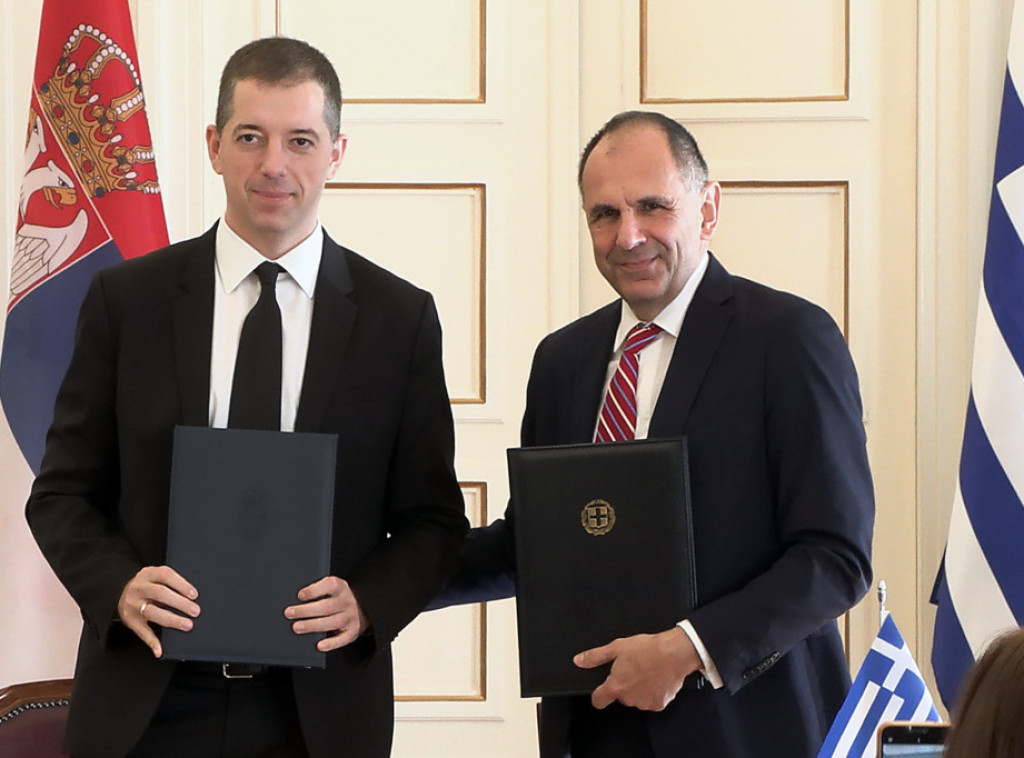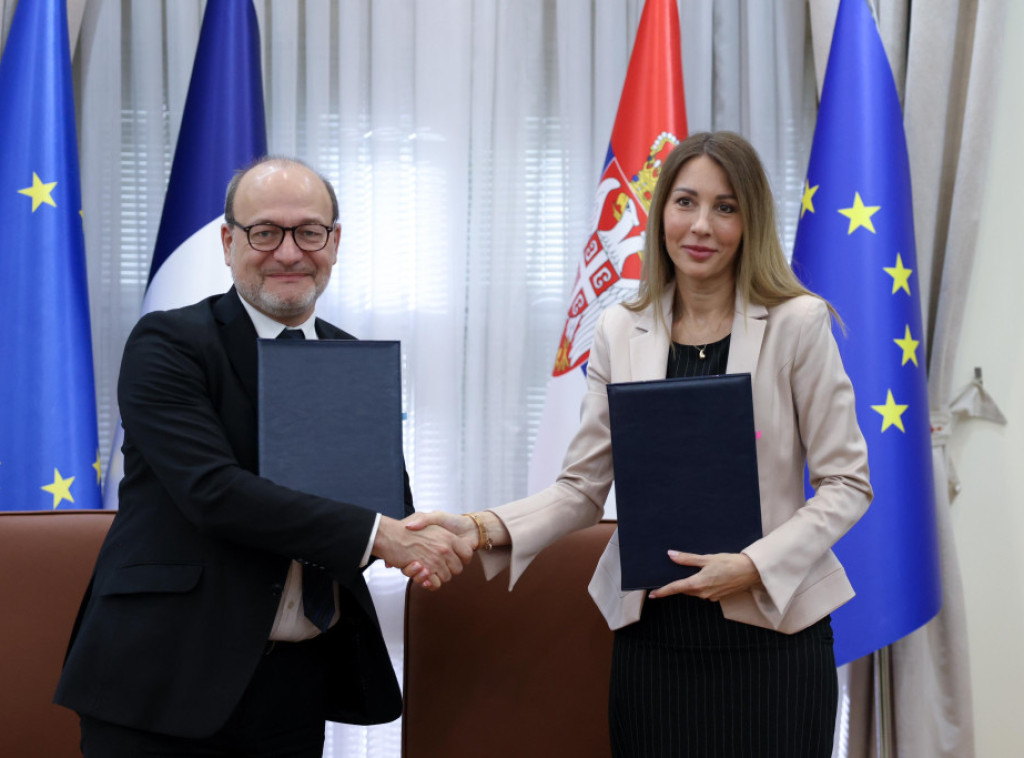
20. decembar 2022 13:58
Fajon: Respect of Brussels Agreement crucial
podeli vest
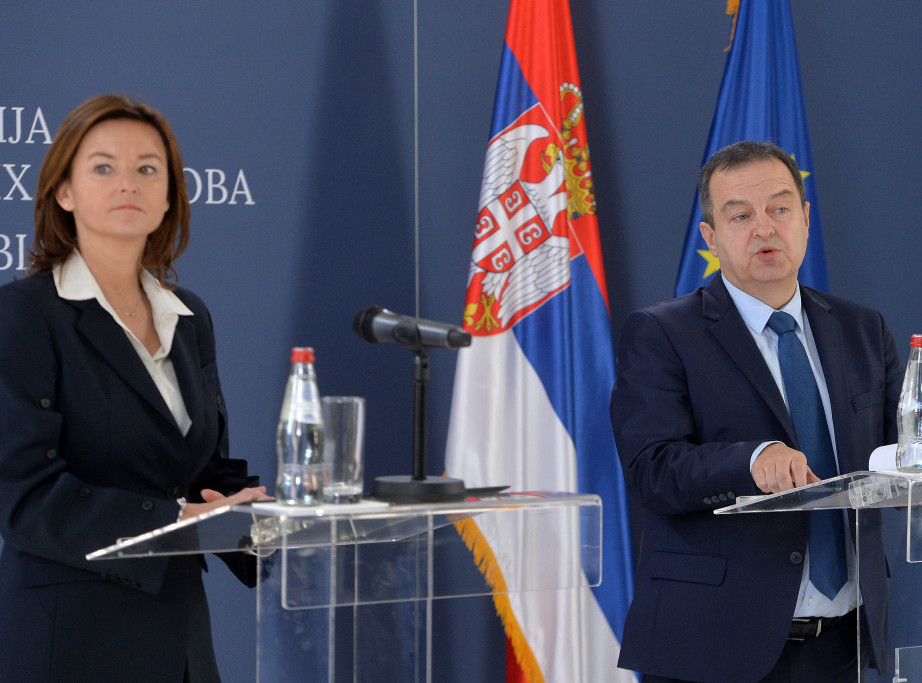
Foto: TANJUG/ZORAN ŽESTIĆ
BELGRADE - After meeting with Serbian counterpart Ivica Dacic, Slovenian Deputy PM and FM Tanja Fajon said on Tuesday in Belgrade normalisation of Belgrade-Pristina relations was the most important for ensuring the best possible life to citizens and noted that respect of the Brussels Agreement was crucial for future cooperation.
At a joint press conference, Dacic said Serbian President Aleksandar Vucic had informed Fajon of the problems in Kosovo-Metohija, and noted that the Brussels Agreement had been signed nine years ago and that it was clear that Pristina's PM Albin Kurti was unwilling to implement it.
"It appears as though Pristina has not even been a part of the negotiations process, which is creating an entire chain of problems," Dacic said, adding that Serbia was committed to peace and literal implementation of all commitments ranging from UN SC Resolution 1244 to the Brussels Agreement.
Fajon noted that Slovenia wanted Serbia to join the EU as soon as possible and commended Serbia for taking positive steps regarding alignment of its visa policy with that of the EU.
She said she also wanted to see Serbia make progress on alignment of its foreign policy with the EU, but noted that it was a sovereign state and would decide on the matter on its own.
Dacic and Fajon announced their governments would set a date for holding a joint session and said the level of economic cooperation was high.
"We are grateful to Slovenia for its support to Serbia regarding European integration, and it has also offered assistance in the form of expert staff when it comes to reforms in some areas," Dacic said.
Fajon said she wanted to use her visit to Serbia to boost bilateral relations and noted that the two countries had excellent political and economic cooperation.
"There are around 1,500 Slovenian companies operating in Serbia, providing 25,000 jobs. We want to strengthen that and to have more Slovenian companies in Serbia and more Serbian companies in Slovenia," Fajon said, adding that the volume of bilateral trade had risen to 2 bln euros.
Dacic and Fajon also discussed the issue of succession, and Fajon said there were certain differences in views and opinions on the matter but that there was also willingness to overcome those differences and continue the good relations.
Dacic noted that, under the Slovenian constitution, Serbs living in Slovenia are no minority, but an ethnic community, unlike Hungarians and Italians.
"There was no discussion about that because that implies an amendment to the constitution, but we want to use that segment as a good reason for developing our bilateral relations," he said.



